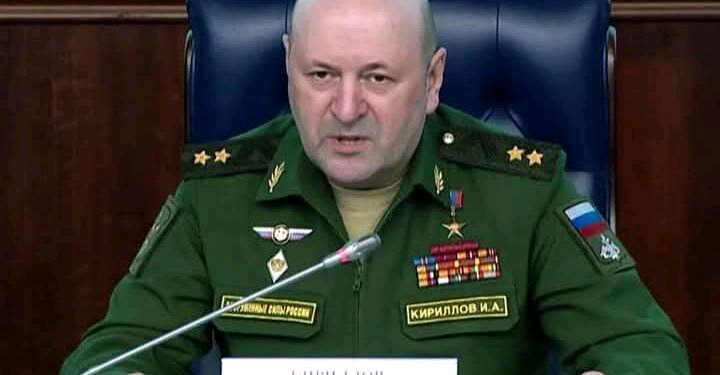By: Chioma Madonna Ndukwu
A powerful explosion near a residential building in southeastern Moscow has claimed the life of Lieutenant General Igor Kirillov, head of Russia’s Radiological Chemical and Biological Defense Forces. The blast, caused by a remotely controlled explosive device attached to an electric scooter, also killed Kirillov’s aide. The device detonated as the two were leaving the building, according to the Investigative Committee.
This tragic incident underscores the ongoing security threats in Moscow, which has seen similar attacks, including drone strikes in 2023. Kirillov, 54, had been in charge of Russia’s chemical defense since 2017 and became known for his public accusations against Ukraine and the U.S. over alleged chemical warfare. Just a day before his death, Ukraine’s Security Service had named him a suspect in a case concerning Russia’s use of chemical weapons in the ongoing conflict.
Russia, however, denies these accusations, asserting that it dismantled its chemical weapons stockpile in 2017. The authorities have initiated a criminal investigation into the bombing.
This tragic event, with its deeply uncertain political context, highlights the dangers of rising tensions in the region. While the explosion may point to a targeted attack, it also raises broader questions about the lengths to which global powers are willing to go to settle conflicts. It’s a stark reminder of the volatility surrounding military and chemical defense issues today.


